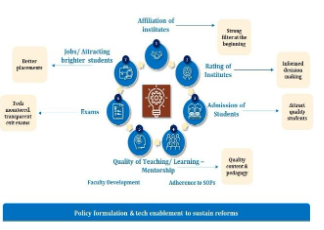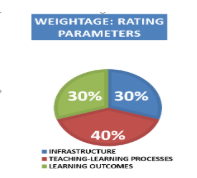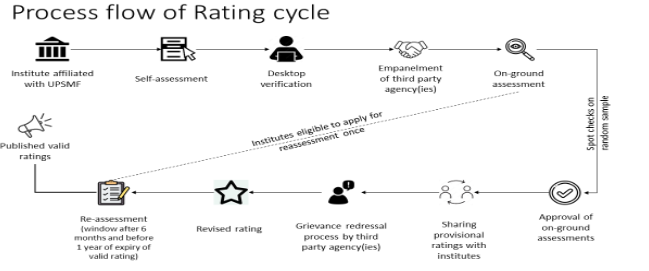Mission Niramaya
 Mission
Niramaya is a flagship initiative by the Uttar Pradesh Government to
transform nursing and paramedical ecosystem, launched on October 8, 2022, by Chief Minister Shri Yogi
Adityanath. Spearheaded by the Uttar Pradesh State Nursing Council (UPSNC) which is housed in Uttar
Pradesh State Medical faculty (UPSMF) in Lucknow and governed through medical education department with
technical support from Jhpiego and Uttar Pradesh Technical Support Unit (UPTSU) and Samagra, the mission
is to set to redefine healthcare education in the most populous state “Uttar Pradesh” of India
Mission
Niramaya is a flagship initiative by the Uttar Pradesh Government to
transform nursing and paramedical ecosystem, launched on October 8, 2022, by Chief Minister Shri Yogi
Adityanath. Spearheaded by the Uttar Pradesh State Nursing Council (UPSNC) which is housed in Uttar
Pradesh State Medical faculty (UPSMF) in Lucknow and governed through medical education department with
technical support from Jhpiego and Uttar Pradesh Technical Support Unit (UPTSU) and Samagra, the mission
is to set to redefine healthcare education in the most populous state “Uttar Pradesh” of India
Mission Niramaya Activities
To ensure excellence in nursing education and professional development, several strategic quality
initiatives have been implemented. These efforts span institutional accreditation, student admissions,
faculty development, and academic reforms:
1. Quality standardization of Affiliation of institutes and Admission of students
1.1 Quality standardization of Affiliation process
To ensure quality of nursing education, the UPSMF initiated a transparent, digitized affiliation process in partnership with Certified National Accreditation body, Jhpiego, Uttar Pradesh technical unit (UPTSU), and Samagra. The inspection process, carried out by trained assessors (150 trained to date), evaluates teaching and hostel block infrastructure, hospital functionality, and statutory documentation. Inspections are conducted as surprise visits, using a standardized framework and surveillance (body crams, video monitoring) to ensure transparency. Reports are reviewed by Certified National Accreditation body before submission to UPSMF.
1.2 Centralized Admissions process: Streamlining the admission process through common entrance and counselling to maintain high standards and ensure transparent student selection.
1.3 School Career Counselling: Facilitating informed career decisions through structured counselling programs for school students, leading to the enrolment of motivated and capable students.
2. Institutional Quality and Faculty Development
2.1 Quality Initiative (Mentor-Mentee Program): Improving Quality of Nursing Education in Uttar
Pradesh
INC-approved Nursing Educational Performance Standards (NEPS) were updated with the latest guidelines
and used to identify Mentor Institutions those meeting at least 85% of the standards and committed to
supporting lower-performing peers. These institutions undergo rigorous training to strengthen their
Quality Improvement (QI) teams. So far, Jhpiego has established 29 Mentor Institutions through this
process. Around 850 faculty members have been trained across five modules: Pragati, Teaching-Learning
Processes, Clinical and Community Practice, Managerial Processes, and OSCE. Mentor Institutions support
mentee (low-rated) institutions through a voluntary, self-financed model promoting sustainable quality
improvement. Initially, 109 mentee institutions joined through this model, with 95 actively
participating and 30% achieving over 75% NEPS compliance. Additionally, 25 Mentor faculty have been
certified based on defined criteria.
2.2 Continuing Nursing Professional Development (CNPD) Program:
Under Mission Niramaya in August 2023, the CNPD program
is India’s first self-sustaining
initiative to
upskill nursing faculty and in-service nurses in Uttar Pradesh. Developed by UPSNC with support from
Jhpiego and others, it offers online sessions at nominal cost, awarding one credit point from March
2025. Over 9,000 faculty have been trained across 18 sessions, showing enhanced knowledge and skills.
Managed by a UPSNC-led committee, the program caters continuous learning and quality improvement in
nursing education. Webinars on Principles of Teaching in Nursing Education were also conducted
enhancing
teaching effectiveness through expert-led webinars focusing on pedagogy, curriculum planning, and
assessment strategies.
 2.3 Rating of nursing and paramedical institutes: Assessments were conducted by Certified
National
Accreditation body using a standardized, app-based tool developed by Jhpiego and UPTSU, with training
and technical support to ensure accuracy and as a measure of quality assurance. Institutes were
evaluated through OSCE-based skill checks, physical inspections, and document verification. Scores were
statistically normalized and categorized into five grades (A to E). This transparent system informs
students and employers about institutional quality while promoting collaboration, innovation, and
accountability in nursing and paramedical education across the state.
2.3 Rating of nursing and paramedical institutes: Assessments were conducted by Certified
National
Accreditation body using a standardized, app-based tool developed by Jhpiego and UPTSU, with training
and technical support to ensure accuracy and as a measure of quality assurance. Institutes were
evaluated through OSCE-based skill checks, physical inspections, and document verification. Scores were
statistically normalized and categorized into five grades (A to E). This transparent system informs
students and employers about institutional quality while promoting collaboration, innovation, and
accountability in nursing and paramedical education across the state.

3. Teaching and Learning Resources
- Development of OSCE Checklists and GNM Modules: Standardizing assessment with detailed (OSCE) checklists to evaluate clinical competence consistently. Updating and standardizing General Nursing and Midwifery (GNM) course content to align with current healthcare needs and academic standards
- Conducting OSCE Workshops: Organizing hands-on workshops to train faculty and students in OSCE methodology for robust skill-based evaluation.
- Creation of Nursing Procedures Videos: Creating high-quality instructional videos to demonstrate standard nursing procedures, aiding visual learning and skills mastery.
Examination and Assessment Reforms
- Examination Reforms: Introducing reforms to ensure assessments are objective transparent , time-bound and reflective of actual competencies, thus promoting fair and outcome-based evaluations.
Impact
Mission Niramaya has elevated the quality, equity, and accountability of nursing education, through strategic reforms such as a transparent rating and affiliation system, digitized admissions, career counselling, faculty development (CNPD), and standardized teaching tools like OSCE checklists and procedure videos, Mentorship models, examination reforms, and emphasis on clinical competence have fostered a culture of integrity, lifelong learning, and academic excellence, ultimately producing a skilled and motivated nursing workforce.





